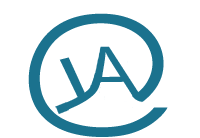English is a Germanic Language of the Indo-European Family. It is the second most spoken language in the world.
There are approximately 300 million native speakers and about 400 million people who speak English as a second or foreign language. It is listed as the official or co-official language of over 45 countries and is spoken world wide even in countries where it has no official status.
This supremacy is matchless in history. English is rapidly becoming the world’s unofficial international language. Although Mandarin (Chinese) is spoken by more people, English is now the most common of the world’s languages.
The roots of English can be traced back to the appearance of three Germanic tribes Angles, Saxons and Jutes in the British Isles during the 5th Century AD. Until that time the people of Britain spoke a Celtic language. But as Most of the Celtic speakers were pushed into Wales, Cornwall and Scotland, the language of Britain has also altered. The Angles (named from Engle, their land of origin), spoke Englisc from which the word, English derives.
An Anglo-Saxon inscription dated between 450 and 480 AD is the oldest illustration of English speech. During the 7th and 8th Centuries, Northumbrian’s culture and language became the principal in the land, but when The Vikings invaded Britain on the 9th Century they introduced their own culture and language. Only Wessex remained an independent kingdom. The Saxon tongue became the official language of Britain. At this time, the vocabulary of Old English was made of an Anglo Saxon foundation mixed with borrowed words from the Scandinavian languages (Danish and Norse) of the Vikings and Latin. Some Celtic words also survived mainly in place and river names. Diversity of English and Norse words existed together furnishing the language with many synonyms such as Ill and Sick, Or Skill and craft.
In 1066 the Normans conquered Britain. French became the language of the Norman aristocracy and added more vocabulary to English. More pairs of similar words arose such as power / might.
Modern English began to form around the 16th Century and, like all languages, the grammar and vocabulary evolved with the years and is still evolving.French affected the spelling of many words as well as the method of making plurals by adding an s (shoe, shoes). In the 14th Century English returned to be the main language with Kings of Britain speaking English as their mother tongue. By the end of the 14th Century, the dialect of London had emerged as the typical dialect of Middle Age English.
In the last 500 the British came in contact with many peoples from around the world, and the Renaissance of Classical learning, influenced the language. New words were created at a fast rate in a process which has grown even further in the modern era.
The list of borrowed words is vast, yet with all these borrowings the basic foundation of the language, grammar in particular, remained the Anglo-Saxon of Old English. Indeed many words have altered with the years and with rich contributions of words from all around the world, the vocabulary of English became the largest and many people believe, also the richest of the world’s languages.
ישנם בקירוב כ300 מליון דוברי אנגלית כשפת אם וכ400 מליון איש המדברים אנגלית כשפה שנייה או זרה. האנגלית רשומה כשפה הרשמית או הרשמית המשותפת של למעלה מ45 ארצות והיא מדוברת בעולם הרחב אפילו בארצות בה אין לה מעמד רשמי.
עליונות בלתי מעורערת זו היא חסרת תקדים בהסטוריה. האנגלית במהירות נהפכת ה לשפה העולמית הבלתי הרשמית הבינלאומית. למרות שמנדרין (סינית) מדוברת על–ידי יותר אנשים, אנגלית היא השפה הנפוצה ביותר בעולם.
ניתן לאתר את שורשי השפה האנגלית עם הופעת שלושה שבטים גרמניים באיי–בריטניה, האנגלס, סקסונס, וג‘וטס, במאה החמישית אחרי הספירה. עד אז אנשי בריטניה דברו גשפה קלתית (.(Celtic
מכיוון שרוב דוברי השפה הקלתית נהדפו לווילס, קורנוול וסקוטלנד, שפת תושבי בריטניה גם היא השתנתה. האנגלסים (שכונו כך על שם אנגל, אדמת מולדתם), דיברו אינגליז, שממנה נגזרה המילה אנגלית.
הקדשות אנגלו–סקסוניות נתארכו בין 450 ל480 לספה“נ, והם הדוגמא הקדומה ביותר של דיבור אנגלי. במשך המאה ה-7 ו ה-8, תרבות ושפת נושמבריה, Northumbria)), נהפכו לעיקריות בארץ, אך כשהויקינגים פלשו לבריטניה במאה ה-9 הם הכירו לאנשי בריטניה את תרבותם ושפתם.
רק ווסקס נותרה ממלכה עצמאית. לשון הסקסונים נהפכה לשפה הרשמית של בריטניה. בזמנים אלו אוצר המילים של האנגלית העתיקה הורכב מבסיס אנגלו– סקסוני עם מלים שאולות מהשפה הסקנדינבית (דנית ונורס) של הויקינגים, ומלטינית. חלק ממילים קלתיות גם שרדו בעיקר שמות של מקומות, אגמים ונהרות.
מגוון של מילים אנגליות ונורסיות התקיימו זו ליד זו כשהן
.craft / skill מפארות את השפה במלים נרדפות רבות כמו
.IIl and Sick או
ב1066 הנורמנים כבשו את בריטניה. צרפתית נהייתה שפת האריסטוקרטיה הנורמנית, וכך נוספו עוד מלים לאוצר המילים.
.Power/might עוד זוגות ומלים חופפות הופיעו כמו
הצרפתית השפיעה על איותן של מלים רבות כמו השיטה בה הופכים לשון רבים על–ידי הוספת ה S.(shoe = shoes). במאה הארבע עשרה האנגלית חזרה להיות השפה העיקרית לכשמלכי בריטניה דיברו אנגלית כשפת אם. בסוף המאה ה–14 הניב הלונדוני הופיע כניב האופייני לאנגלית של ימי הביניים.
האנגלית המודרנית החלה להתגבש בסביבות המאה ה–16 וכמו בכל שפה הדקדוק ואוצר המלים התפתח עם השנים ועדיין ממשים להתפתח.
בחמש מאות שנים האחרונות הבריטים באו במגע עם אוכלוסיית העולם, עם הרנסאנס ולימודי הקלאסיקה אשר השפיעו על התפתחות השפה. מלים חדשות נוצרות בקצב מהיר בתהליך שצומח וגודל עוד יותר בעידן המודרני. רשימת המלים השאולות גדלה והולכת, אך עם כל זאת התשתית הבסיסית של השפה, דקדוק במיוחד, נשארה האנגלית העתיקה האנגלו סקסונית. מלים רבות השתנו במשך השנים, ועם תרומה גדולה של מלים מכל רחבי העולם, אוצר המלים האנגלי הוא הגדול ביותר, ורבים מאמינים העשיר ביותר, מכל שפות העולם.

Recent Comments